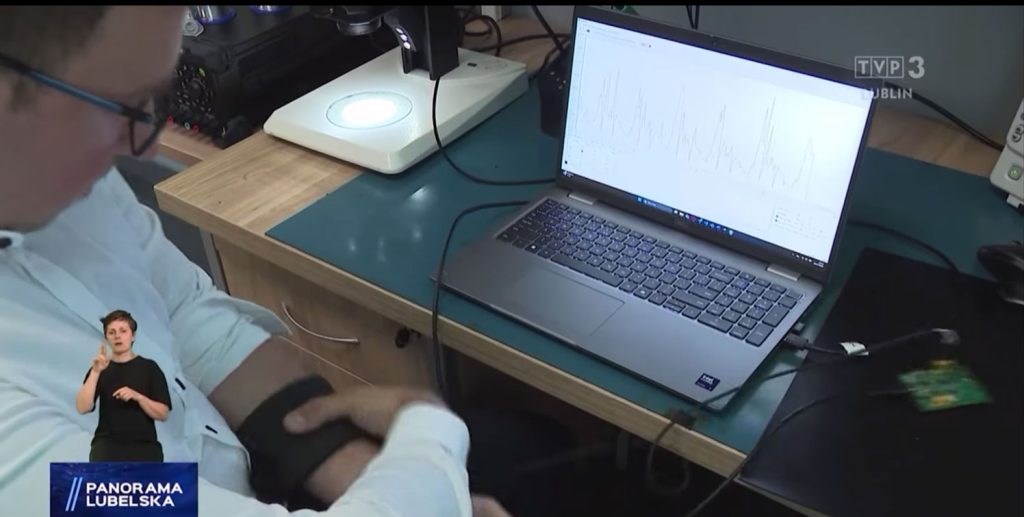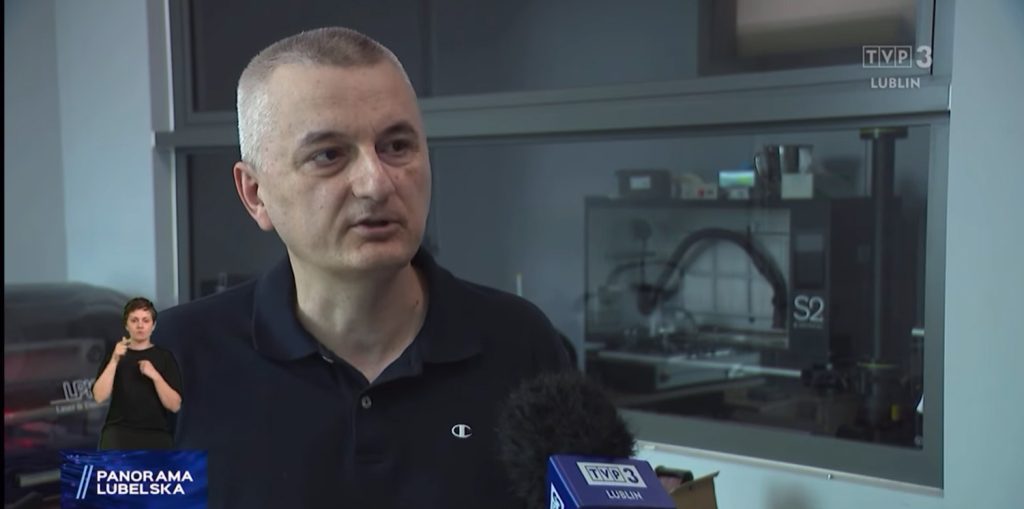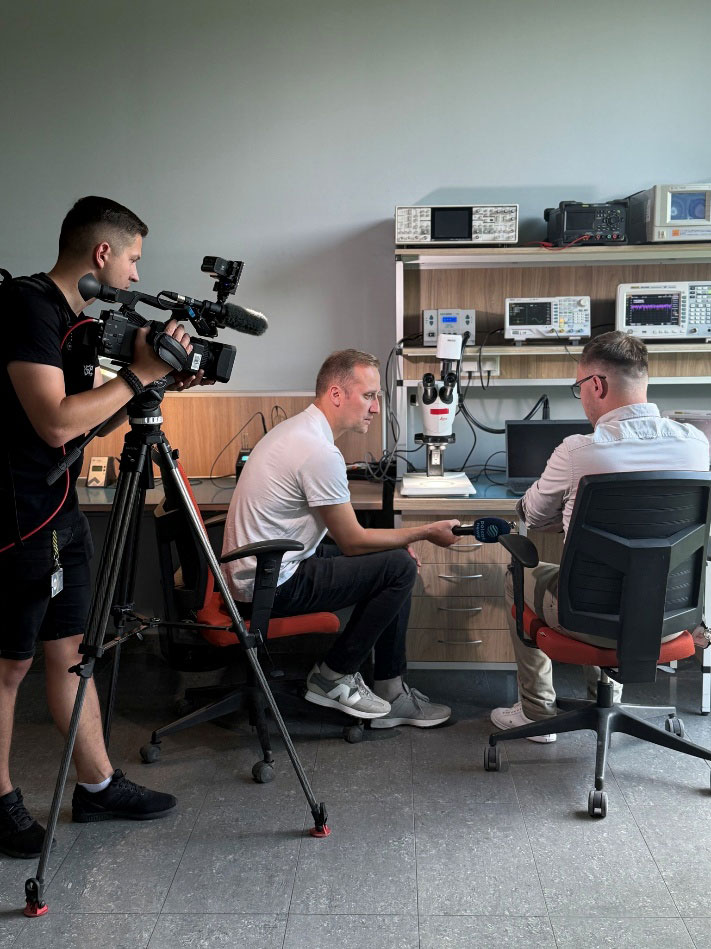A non-invasive system for continuous monitoring of blood glucose levels using impedance spectroscopy
The Netrix S.A. Research and Development Center is conducting an innovative research and development project aimed at developing a modern, non-invasive system for continuous blood glucose monitoring. The project is based on an advanced impedance spectroscopy method and integrates modern optical sensor technologies. This solution aims to replace traditional diagnostic methods—based on painful and cumbersome punctures—with a system for convenient, daily, real-time measurement. This technology has the potential to be a breakthrough in diabetes care, introducing a new standard in monitoring the health of patients with diabetes and other chronic diseases.

The project gained widespread media attention and was featured on both the national news program “Wydarzenia” broadcast by Polsat Television and the regional edition of Panorama Lubelska. The reports featured, among others, Tomasz Rymarczyk, Ph.D., Eng., professor at WSEI – Director of the Netrix Research and Development Center and Director of the Institute of Information Technology and Innovative Technologies at the WSEI Lublin Academy, as well as Dominik Gnaś, a doctoral student at the same university and employee of Netrix S.A.

Dominik Gnaś has been selected for the prestigious “Implementation Doctorate 2024” program run by the Ministry of Science and Higher Education, which enables young scientists to combine research with the development of technologies with direct industrial application. The subject of his doctoral thesis is the development of a system for non-invasive glucose measurement. The device being developed combines impedance spectroscopy with advanced optoelectronic sensors, enabling not only the determination of glucose levels but also the monitoring of parameters such as heart rate, saturation, body temperature, and blood pressure.

The project encompasses the full spectrum of research and implementation activities – from mathematical modeling and laboratory testing, through clinical trials, to the construction of a functional prototype, its certification, and preparation for mass production. The project team is focused on creating a portable, safe, and convenient device that can be used by patients at home, significantly improving quality of life and the effectiveness of self-management.

The project, developed at the Netrix Research and Development Center, is an example of an effective combination of science and industrial practice, where interdisciplinary knowledge in electronics, medicine, computer science, and biomedical engineering is translated into concrete technological solutions. The project has the potential not only to improve the quality of life for millions of patients worldwide but also to provide a significant boost to the development of the Polish medical technology sector. Collaboration between the university and industry, under the “Implementation Doctorate” program, confirms the effectiveness of this model as a tool for strengthening the innovation and competitiveness of Polish science and the economy.

